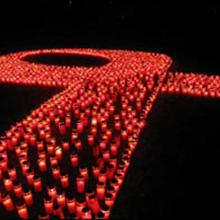
Today is World AIDS Day, and Mark Lazarowicz, MP is calling on the UK government to help bridge a shortfall in the Global Fund to Fight AIDS, TB and Malaria.
According to experts in the field there is now a real opportunity to finally break the cycle of infection and potentially see the disease wiped out within a generation.
'Without renewed commitment,' Mr Lazarowicz writes, 'there is a real danger that the progress made could be reversed but if we seize the chance the end of AIDS could at last be in sight.'
There are now more people than ever living with HIV in the UK — more than 90,000 — with around a quarter of those unaware they have the virus.
'AIDS need no longer be a death sentence,' Lazarowicz continues, '... yet the number of new infections continues to grow even though exciting new research shows the role that antiretrovirals can play in preventing transmission, as well as treatment.'
Mr Lazarowicz spoke at a Waverley Care-organised seminar last summer, and at an autumn meeting of Edinburgh University's Stop AIDS campaign.
A few HIV facts
HIV stands for the Human Immunodeficiency Virus. It is a virus which attacks the body's immune system — the body's defence against diseases.
HIV can be passed on through infected bodily fluids, most commonly via sex without a condom or by sharing infected needles, syringes or other injecting drug equipment.
- Over 90% of people with HIV were infected through sexual contact
- HIV is not passed on through spitting, biting or sharing utensils
- You can now get tested for HIV using a saliva sample
- You can get the results of an HIV test in just 15-20 minutes
- Only 1 per cent of babies born to HIV positive mothers have HIV
- There is no vaccine and no cure for HIV